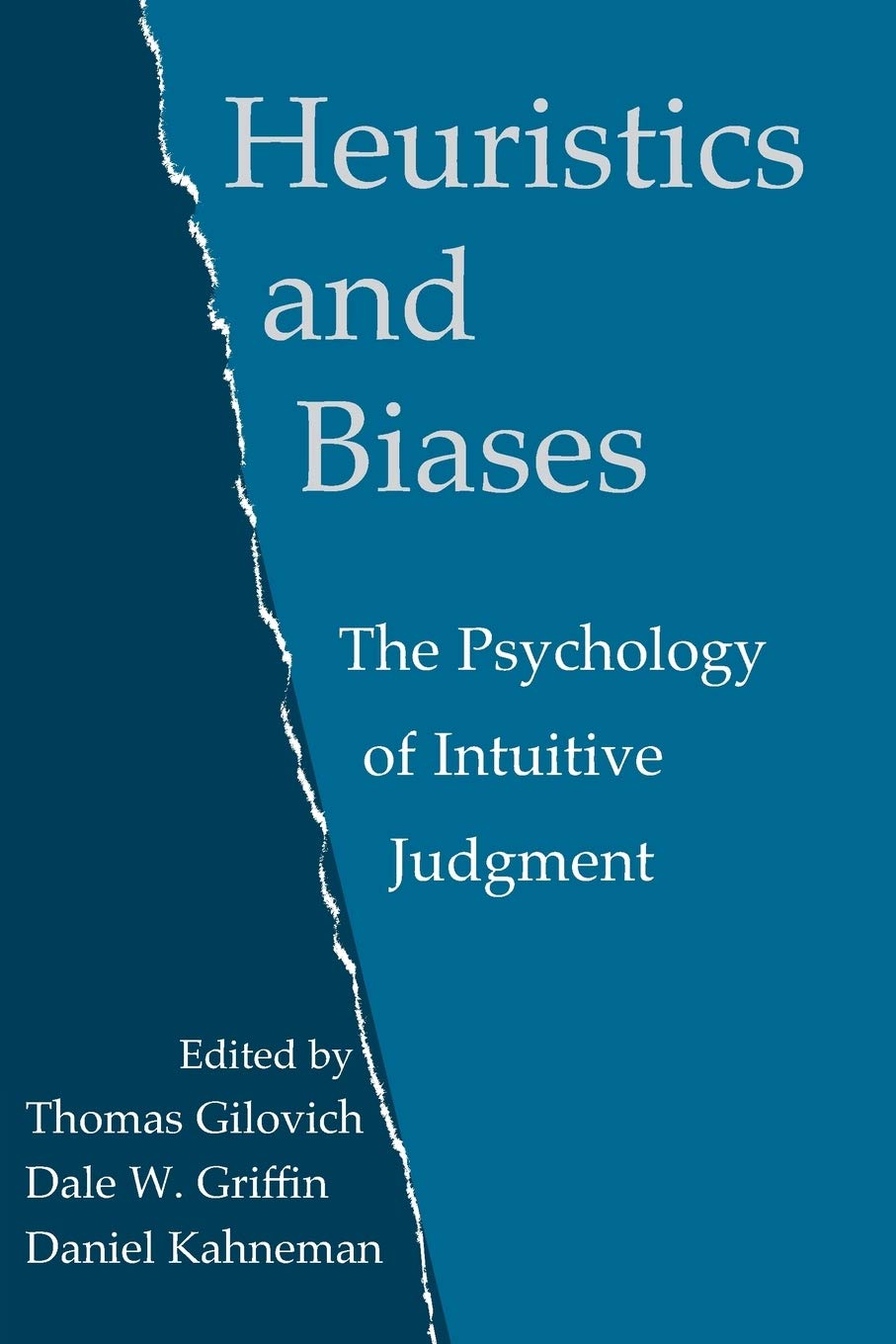It's first and foremost a heuristic -- a reasonably good way to generate good behavior. Secondarily, in certain specific situations, it causes non-optimal behavior.
[1] ( https://www.amazon.com/Heuristics-Biases-Psychology-Intuitiv... )
http://www.amazon.com/Heuristics-Biases-Psychology-Intuitive...
After you've practised and gotten good at something, you've got your brain to start using the fast side to handle things. For instance, bike riding. At first, you're consciously thinking and trying to control everything. After a while, you get heuristics that take over and it becomes natural.
This happens in a lot of subjects, as far as I can tell. So, you shouldn't trust your intuition blindly. But understand the biases you're likely to have and how your brain is immediately popping up these ideas can be useful. Perhaps intuition can be more powerful because it's our brain using some fast ways of coming to a conclusion?
http://www.amazon.com/Heuristics-Biases-Psychology-Intuitive...
http://www.amazon.com/Heuristics-Biases-Psychology-Intuitive...


I couldn't help but think that TFaS was the product not so much of a desire to share some new insights he'd recently discovered but rather that he saw (or some publisher pointed out to him) how authors such as Pinker, Greene, Tyson, et al were garnering considerable attention and revenue translating sophisticated scientific topics developed by others for a lay audience. As if someone said to him: "Hey, you were involved in discovering some sophisticated and important topics, why don't you translate those to a lay audience?!"
I have great respect for Kahneman and H&B is a wonderful collection. However I find it peculiar that the entirety of TFaS seems, on the surface (again I've not read it) strikingly similar to essay #22 in H&B by Steven A. Sloman titled "Two Systems of Reasoning". In it he uses Kahneman's and Tversky's work to argue for two competing strategies for arriving at the truth: associative vs rule-based.
It's as if Kahneman is borrowing from Sloman who borrowed from Kahneman.
[0]https://www.amazon.com/Heuristics-Biases-Psychology-Intuitiv...